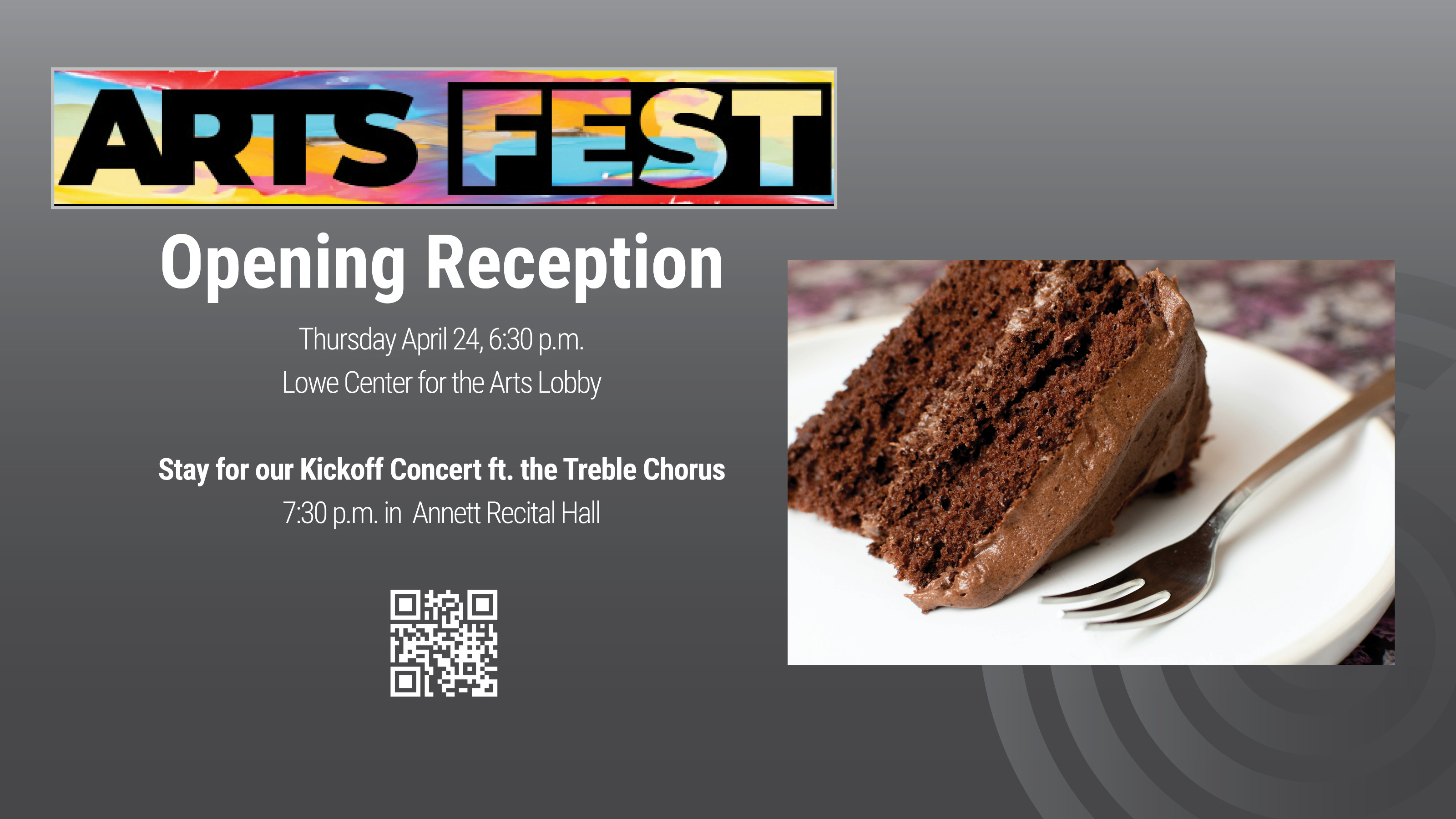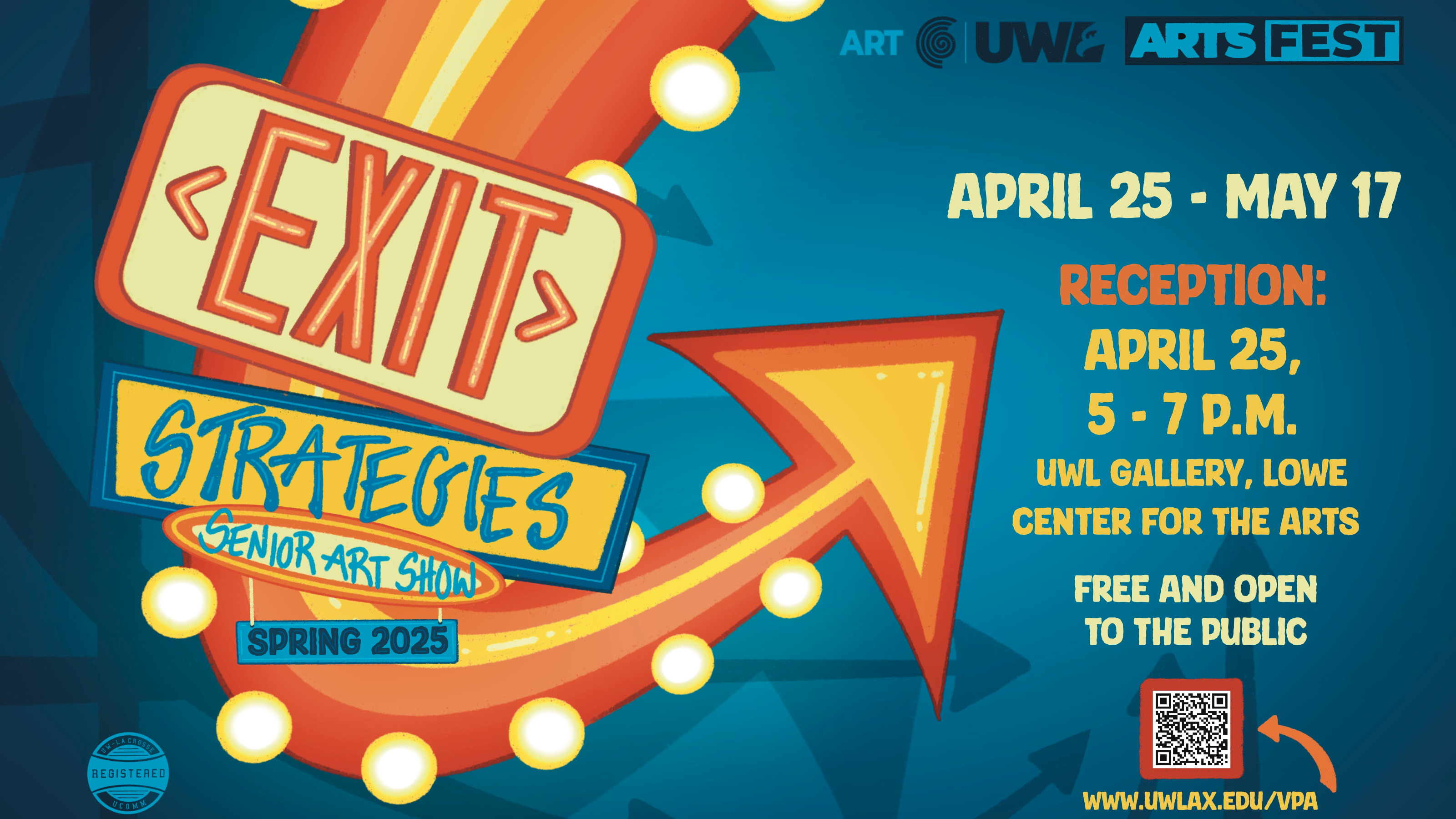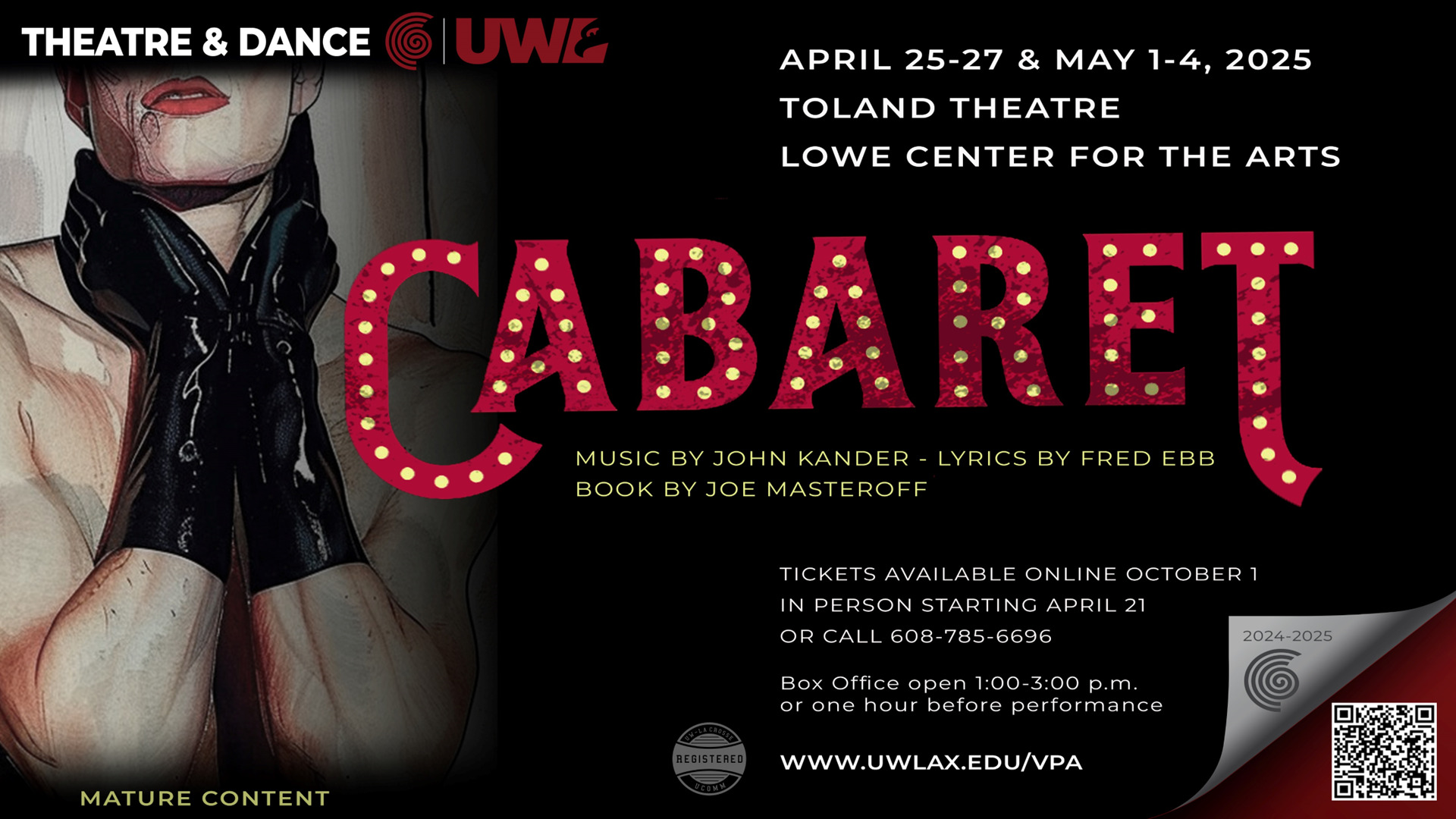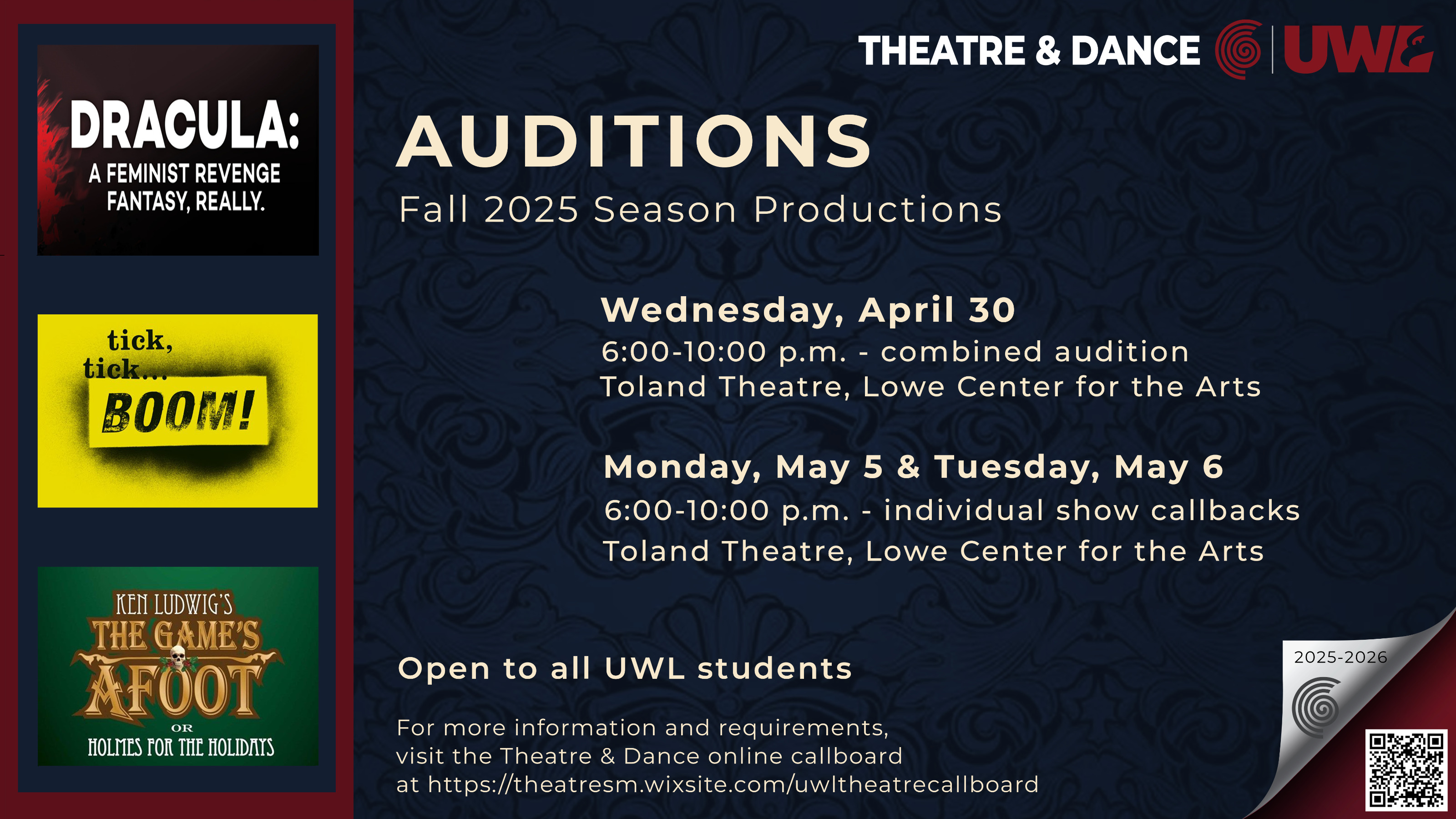Theatre & Dance
Choosing a program
Sorting Out the Differences of Undergraduate Theatre Programs
If you’re a high school junior or senior who expects to be studying theatre at college in the near future, you probably have a good idea of the dimensions of the decision. There are so many variables, and so many possibilities, with nearly three thousand colleges, universities, and professional schools in the United States. Finding one that’s right for you involves sorting through the information regarding course offerings, faculty, facilities, location, cost, financial aid, and theatre opportunities. At the outset, you have a choice to make regarding the type of higher education you want to pursue. That choice basically falls in two categories:
- You can pursue professional training immediately in a four-year Bachelor of Fine Arts or two-year conservatory program.
- Or you can begin by getting a broad, liberal arts education, while focusing on theatre, earning a Bachelor of Arts degree with a major in theatre. After graduating, you may choose to pursue further professional training at the graduate level.
The BA and BFA represent two fundamentally different ideas about how theatre artists should be trained. The liberal arts approach is designed to provide a BA student with a broad range of knowledge in the arts, humanities, and science as well as theatre. BA theatre students should develop basic techniques and production experience in an environment that leads to a fuller intellectual grasp of the art and its place in society.
The BFA places primary emphasis on the development of skills, concepts, and sensitivities essential to the theatre professional. BFA programs offer areas of concentration including acting, design and technology, film and video production, theatre for youth, musical theatre with an emphasis in theatre, and musical theatre with an emphasis in music. Because of its strong focus on specific skills in theatre, the BFA does not offer the broader-based education that the BA offers.
Like all other aspects of choosing a school, the question of whether to pursue a liberal arts or professional degree as an undergraduate is a personal one. The issue is not whether one approach is better; it’s a matter of figuring out which course of study is best for you.
 Click Clack Moo
Click Clack Moo
Determining What You Want in a Theatre Arts Program
The process of selecting a place to study theatre is a two-way street. The school wants to know if you’re the kind of student who will do well in its program, and it seeks to find out by asking you to fill out an application, supply your grade point average and SAT/ACT scores, audition, and/or interview. Similarly, you need to find out everything you can about the education and training you will receive at a school you’re considering.
Your first questions should be ones that you ask of yourself to help you understand what you are looking for in a college theatre program such as:
- What do I want to get out of college theatre training?
- Do I want to learn more to see if it’s an area I might want to pursue professionally or do I already know this is what I’m going to do and want the best training I can get in professional skills?
- What do I want to be doing when I finish school?
- Am I more interested in film and television or in live theatre?
- Do I want to teach theatre in schools?
- Do I want to study in a liberal arts or a conservatory setting?
- What size program do I prefer?
- What kind of environment suits me? Urban setting? Small town? Large state university? Private college? How far from home?
- How big of a gap between the total annual cost and the financial package can I afford?
- How do I learn best? Hands-on experience or classroom setting?
 Into the Woods
Into the Woods
What training and educational approach do you offer—liberal arts (with a BA degree) or conservatory (BFA)?
 Big RiverThe University of Wisconsin-La Crosse Department of Theatre and Dance offers an invigorating and fresh approach to liberal arts undergraduate theatre training. The curriculum with a BA and BS in Theatre Arts with concentrations in Performance, Design and Technical Production, Management, Musical Theatre, General Emphasis and Dance (minor only), give you the flexibility to create a program tailored to your interests.
Big RiverThe University of Wisconsin-La Crosse Department of Theatre and Dance offers an invigorating and fresh approach to liberal arts undergraduate theatre training. The curriculum with a BA and BS in Theatre Arts with concentrations in Performance, Design and Technical Production, Management, Musical Theatre, General Emphasis and Dance (minor only), give you the flexibility to create a program tailored to your interests.
UWL Theatre is unique in that students may both major and minor in theatre. For example, a student may major in Theatre Performance and minor in Theatre Management. In this regard, experience and training can be more specialized, similar to a Bachelor of Fine Arts degree without sacrificing the strong broad-based education valued at UW La Crosse.
What is the mission of the department?
The Department of Theatre and Dance at UW La Crosse endeavors to provide students with the tools necessary to function as complete artists and self-realized individuals, combining theatrical training with a strong liberal arts curriculum. A combination of classroom training and realized production work allows for a well-rounded college experience with an emphasis on the collaborative and creative process.
How is the overall program divided among dramatic literature, acting, theatre history, technical theatre, directing, playwriting, theatre management, etc. ?
Students who major or minor in theatre take a core of classes that include all aspects of the study and practice of theatre. You will read and study plays from today and the past, take a course with other new students in the basics of creating a performance, and an entry level class in stagecraft: the backstage skills needed for any production. Everyone takes a beginning class in acting, too. Then, much of it is your choice. You can choose an emphasis area from any of five areas if you wish to focus on one part of theatre, or you can choose a general emphasis. All of our students, however, do participate in productions in all elements of theatre practice, so you will come out of our program knowing something about every part of theatre and the production of plays.
What are the professional credits of the faculty and what are they doing professionally now? What are their areas of specialty?
The UWL Department of Theatre and Dance currently consists of 11 full-time theatre and dance faculty. All of the Theatre faculty hold either a Masters of Fine Arts (MFA) or a Ph.D. with areas of expertise including scenic and lighting design, costume and make up design, directing, theatre history and criticism, acting, voice and movement, dance choreography, technical direction, intimacy coordination, and sound design. In addition to its full-time faculty, the department frequently brings guest artists to campus from professional and educational theatre around the world.
Our faculty have worked professionally with such organizations as VEE Corp. (creators of Sesame Street), Arrow Rock Lyceum Theatre, Illinois State Dance Theatre, Steppenwolf Theatre, Heartland Theatre in Kansas City, and the Illinois Shakespeare Festival. The Department of Theatre Arts is also proud to be affiliated and active with the American College Theatre Festival (ACTF), Association for Theatre in Higher Education (ATHE), Alliance for Wisconsin Theatre Educators (AWTE), United States Institute of Theatre Technology (USITT), and the Wisconsin Alliance for Arts Education (WAAE).
Where are your recent graduates now, and what are they doing? Were they accepted to graduate school?
Our blend of unlimited opportunities and close personal attention produces excellent results. Over 90% of our graduates find jobs. Many pursue careers in the professional theatre as actors, directors, designers, stage managers, and technical directors. UWL’s graduates work at some of the nation’s most distinguished theatres and graduate programs including the Actors Theatre of Louisville, SoHo Rep, Penumbra Theatre Company, Actors Studio Theatre, Asolo Theatre, Milwaukee Repertory, The Arrow Rock Lyceum Theatre, The Guthrie Theatre, and the Santa Fe Opera. We have had students in the graduate theatre programs in Florida State University, Temple University in Philadelphia, PA, University of Minnesota, Purdue University, University of California-Los Angeles (UCLA), and the California Institute for the Arts.
What is the ratio of faculty to students? To majors? To minors? What is the size of theatre classes?
UWL boasts a student to faculty ratio of 20:1 and an average class size of 30 students. Within the Department of Theatre and Dance, student to faculty ratio averages 10:1 with an average class size of 16. One-on-one contact with our teaching faculty is emphasized, and because of our low student-to-faculty ratio, students are guaranteed a degree of personal attention rarely available in larger programs. Theatre and dance courses are kept small to provide more personalized instruction and allow for more effective training. For example, Acting courses are limited to less than 25 students so faculty can work one-on-one with each student.
Each theatre major and minor is also assigned to a faculty advisor to coordinate course schedules, pursue career information, plan acting/directing/technical projects, etc. Each semester, the department also holds two “Major/Minor Meetings” to discuss upcoming events, audition information, theatre opportunities, and production assignments.
Where do your students come from? Is the student body geographically, ethnically, racially, or culturally diverse? What is the percentage of minority students enrolled in the program? What is the male-to-female ratio of students enrolled in the program?
Most students at UW La Crosse are from Wisconsin and Minnesota with approximately 16% percent of UWL students from out-of-state. The University also has a strong international program with students attending from countries around the world including Germany, China, Japan, Indonesia, Canada, Korea, India, etc. The student body consists of approximately 40% males and 60% females. The Department of Theatre Arts is a reflection of the campus as a whole with most of our students haling from Wisconsin and Minnesota. The overall program has a 10% minority population, higher than the campus average, and is fairly evenly split regarding male-to-female ratio.
Can I double major in another area? Minor?
Students enrolled in Theatre and Dance can double major or minor in any other area offered at UWL. There are currently students majoring in Theatre and Psychology, Business, and Communications Studies. Our students also have the unique opportunity to both major and minor in theatre with different emphases including general studies, performance, management, design/technical, musical theatre and dance.
Can I design an independent study if there isn’t a program in something I’d like to study? Are there opportunities for studying abroad?  London Group 2008The UWL Department of Theatre and Dance will work with students to design independent study projects that best suit the needs and interests of that student. The program also offers rotating courses in Special Topics in Theatre Arts for workshops, directed individual readings, or projects involving significant content or activities not available through regular offerings with the department. UW La Crosse has a strong study abroad program and has travel opportunities in 20 countries including Argentina (Buenos Aires), Australia (Melbourne), China (Bejing, Hong Kong, Guilin), Costa Rica (San Jose), Czech Republic (Prague), Denmark (Copenhagen), France (Caen), New Zealand, Germany (Oldenburg and Hessen), Israel (Tel Aviv), Italy (Rome), Japan (Nagasaki), Mexico (Xalapa and Puebla), United Kingdom (London and Scotland), and Spain (Valladolid and Seville).
London Group 2008The UWL Department of Theatre and Dance will work with students to design independent study projects that best suit the needs and interests of that student. The program also offers rotating courses in Special Topics in Theatre Arts for workshops, directed individual readings, or projects involving significant content or activities not available through regular offerings with the department. UW La Crosse has a strong study abroad program and has travel opportunities in 20 countries including Argentina (Buenos Aires), Australia (Melbourne), China (Bejing, Hong Kong, Guilin), Costa Rica (San Jose), Czech Republic (Prague), Denmark (Copenhagen), France (Caen), New Zealand, Germany (Oldenburg and Hessen), Israel (Tel Aviv), Italy (Rome), Japan (Nagasaki), Mexico (Xalapa and Puebla), United Kingdom (London and Scotland), and Spain (Valladolid and Seville).
What do I get to do? On what level are undergraduates involved with department productions? Do they perform, direct, or design these productions? Do freshmen get to perform?
The University of Wisconsin La Crosse Department of Theatre and Dance is an undergraduate program; therefore younger students are not competing with graduate students for performance or design opportunities. The theatre degree program offers a wide range of opportunities while creating a focused and individual area of study for each student. Undergraduates, regardless of year in school, are involved in every aspect of the department productions including costumes, makeup, performance, directing, etc. Theatre and Dance students have had extensive production opportunities such as assistant directing Secret in the Wings, designing props and scenic elements for Dragons Love Tacos, creating special effects and pyrotechnics for A Christmas Carol, and designing sound for Dirty Rotten Scoundrels. All performances, including SummerStage and children’s show, are stage managed and performed by students with opportunities to work on scenic and costume construction, lighting, sound, promotion and publicity.
Would there be opportunities for me in various areas of theatre production, or will I be limited to a specialized area? Does the department encourage study of various aspects of theatre?
The Department of Theatre and Dance encourages students to obtain a wide range of experiences in order to make themselves as well-rounded and marketable as possible. Therefore, all students are required to take a THA 360 course each semester which is a specialized, intensive study and participation in theatre productions. These courses may involve assembling and designing costumes, constructing scenery or props, managing front-of-house activities, performing, directing, etc. Because students take these courses each semester, these courses allow the broadest range of opportunity for each student.
Are there mainstage and black box opportunities to stretch my craft? Does your school have a theatre space for student-directed productions?
We are very proud of our two stages. And yes! We encourage students to develop independent productions. Our larger theatre, the Toland Theatre, is a proscenium space in the Lowe Center for the Arts. It seats 426. Our smaller space, the Frederick Theatre, is an intimate thrust, or ¾ round space. It has all new equipment, and seats 103. Many of the students’ independent productions are staged in the Frederick Theatre.
What types of plays do you do? Do you produce/provide training in musical theatre? Who directs your shows? How are shows selected?
The Department of Theatre and Dance seeks to create performance seasons of high educational and artistic value representing a broad range of forms and styles which will maximize the artistic and critical development of our students. Beyond this overriding goal, the department strives to present plays which will contribute to the social and cultural life of the University and the La Crosse community.
Suggestions for the coming season of plays are solicited from faculty and students and are then evaluated by the Season Selection Committee (which consists of faculty and students). Play choices are based on student performance/production opportunities, artistic/educational quality, male/female casting ratios, production requirements, and potential interest from the university and community. The Department of Theatre and Dance is committed to developing seasons that reflect the multicultural world around us by presenting works from authors of different historical periods, styles, nations, ethnicities, and genders.
Productions are largely directed by theatre faculty with the exception of guest directors and student senior directing projects.
The theatre season consists of a minimum of one musical per academic year and the SummerStage musical in order to enable theatre students to perform in a musical setting. The Musical Theatre program offers classes such as The Singer/Actor, History of Musical Theatre, Musical Theatre Vocal Study, Cabaret Performance, Voice and Movement, and Dance including ballet, jazz, tap, or modern.
Are there off-campus internship possibilities available through the department that will allow me to obtain hands-on professional experience? Can I do an internship for credit? Do I have to pay tuition to do that?
The UWL Department of Theatre and Dance offers various internships available for credits. Number of credits depends on the demands, complexity and duration of the work the student performs. Internships must offer an academically relevant work experience focusing on career development through professional contexts. Students pursue practical applications of course work in community or professional theatre or related areas. A written project relating the internship experience with the academic preparation is required as well as a joint evaluation with the cooperating firm and department supervisor. Students have performed internships at the La Crosse Symphony box office, The Pump House, American University in Cairo, Egypt, etc.
Is there a community theatre near campus?
La Crosse boasts a successful local community theatre which produces 5-7 productions each year. Much of the performing and construction is done on a volunteer basis by community members and offers an opportunity for UWL theatre students to garner additional experience.
Does your school have any contacts with professional theatres?
Through past work experience and alumni contacts, the Department of Theatre and Dance maintains a connection with a variety of professional theatres including Arrow Rock Lyceum Theatre, Stepping Stone Children’s Theatre, VEE Corporation, Summer Shakespeare Festival in Colorado, FirstStage Children’s Theatre, Heartland Theatre in Kansas City, St. Louis Music Theatre, Steppenwolf Theatre, Great Rivers Shakespeare Festival, Commonweal Theatre, and Illinois State Dance Theatre.
Does your school have a summer theatre program where I could get experience?
The University’s SummerStage program began in 1979 as a means of bringing semi-professional theatre each summer to the La Crosse area. It is our mission to present high quality theatrical productions for the University and surrounding communities. We enlist students, theatrical professionals and local performers in the creation of our summer endeavors in an effort to expand our academic theatre base. Past performances have included Cinderella, All Shook Up, Chicago, Hair, Footloose, Jesus Christ Superstar, and Grease.
How do you aid students in making the transition into professional work for internships, summer work, and after graduation?
Besides providing great hands-on experience for our students, the UWL Department of Theatre and Dance provides additional training through resume workshops, yearly audition/portfolio reviews, stage combat workshops, guest directors and presenters, visiting playwrights, etc. The department also assists students with obtaining summer employment in professional theatres such as Arrow Rock Lyceum Theatre, Summer Shakespeare Festival in Colorado, Great River Shakespeare Festival in Winona, Minnesota, etc. as a means of learning new skills, making personal and professional contacts, and building their resumes.
What financial help does the department offer?
The University of Wisconsin La Crosse annually awards over $2 million in scholarships to its students with over 150 different scholarships. The College of Arts, Social Sciences and Humanities—School of Visual and Performing Arts has approximately 32 scholarships with several of these specifically for Theatre and Dance students. Annually, the Department of Theatre and Dance awards approximately $8,000-$10,000 in scholarships to eligible Theatre and Dance students based on participation, scholastic achievement, and financial need.
In addition, there are numerous part-time employment and work-study opportunities within the department. Qualified students work in the areas of scenic and costume construction, lighting, sound, promotion and publicity.
What kinds of experiences will I have in the sequence of acting classes?
The acting sequence is designed to expose students to variety of experiences and pedagogical influences. Students start with a firm foundation in the fundamentals of acting technique and character analysis. Over the course of four semesters, they move from process to product exploring realism, improvisation, character development, and non-realistic styles of acting such as Greek, Shakespeare, Restoration, and Absurdism. The focus of the fourth semester is the audition process where students are prepared for what they may encounter after graduation through a variety of in-class audition experiences.
 World Goes Round
World Goes Round
Is there a voice production component to the training? Will I be taught dialects? Is there a movement component to the training? Will I have a chance to learn stage combat?
Voice and Movement components are integral to the Performance and Musical Theatre Emphases. Voice and Movement is required for the Performance Emphasis and is a strongly encouraged elective within the Musical Theatre emphasis. Voice and Movement is designed to open and expand the voice while energizing articulation, reducing regionalisms and preparing students for the demands of heightened text and dialect work they will encounter in performance opportunities. A wide variety of texts including the classics make up our seasons and recent productions have utilized Irish, British Standard, and various dialects from the American South. Students who wish to pursue specialized combat training have arranged independent studies and research opportunities with our movement instructor who has trained with the Society of American Fight Directors and has professional stage combat experience.
Does the department enter student playwriting, acting, design or directing work in competitions such as the American College Theatre Festival or any similar programs?
The UWL Department of Theatre and Dance enters productions and nominates students for the Kennedy Center/American College Theatre Festival. Performance students may be nominated for the ACTF Irene Ryan Acting award and others are nominated for stage management, lighting, sound design, and directing. Those nominated will then attend the ACTF competition with a faculty advisor and are encouraged to attend performances and workshops and meet with graduate school programs that are available.
Will I be able to work on shows on a regular basis as a technician or designer in my area of interest?
As an active theatre and dance department, there are always opportunities for technicians and designers to be involved in productions. As the student designer/technician grows in training and experience, so does their level of responsibility on any given production. We encourage our students to balance their classroom training with their production work.
Are there advanced classes beyond an introductory course in design/tech?
The Department of Theatre and Dance offers a wide variety of design/tech courses including Foundations of Theatrical Production, Stagecraft, Costume Crafts, Renderings for Theatre Design, Stage Makeup, Scene Painting, Theatre Technology, Scenery Design, Lighting Design, Sound Design and Engineering, and Costume Design/History. For students who wish to study beyond the classroom offerings, internships, independent studies, and practicums are all available to further enhance their design/tech skills.
Are the performance and fabrication facilities and the equipment in them similar to those used in the professional regional theatres and theme parks in the surrounding area?
The Center for the Arts houses modern classrooms and the Marie Park Toland Theatre, a 420-seat proscenium theatre with mechanical thrust supported by fully equipped scene, properties and costume studios, computerized lighting control, makeup and dressing rooms, and the publicity studio. In addition, the Robert Lee Frederick Theatre in Morris Hall provides a more intimate thrust stage setting. With a minimum of faculty control, students can experiment, explore and mature artistically.






